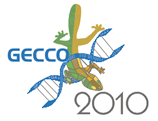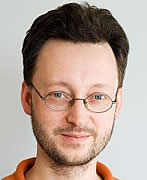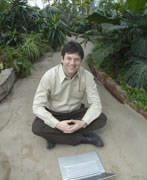THURSDAY, 8 JULY. 14:00-18:00


| Thomas Bartz-Beielstein, Cologne University of Applied Science |
|
| Steffen Christensen, Policy Research Initiative, Ottawa |
|
| Mike Preuss, TU Dortmund |
|
| Mark Wineberg, University of Guelph |
| PORTLAND, OREGON THURSDAY, 8 JULY. 14:00-18:00 |
 |
||||||||
 |
|
 |
Thomas Bartz-Beielstein, Cologne University of Applied Science. Dr. Thomas Bartz-Beielstein is a professor for Applied Mathematics at Cologne University of Applied Sciences (CUAS). He is head of the FIWA research team at CUAS, which develops tools from Genetic and Evolutionary Computation (GEC) for applications from finance and water industry. Prof. Bartz-Beielstein has published more than several dozen research papers, presented tutorials and workshops about interactive and automatic tuning of randomized and deterministic algorithms, and has edited several books in the field of GEC, e.g., "Experimental Research in EC" and "Experimental Methods for the Analysis of Optimization Algorithms". His research interests include optimization, simulation, and statistical analysis of complex real-world problems. Prof. Bartz-Beielstein is the driving force in the development of the Sequential Parameter Optimization methodology and the related Toolbox (SPOT). SPOT was applied as a tuner for numerous optimization algorithms such as evolution strategies, differential evolution, or particle swarm optimization. |
| Steffen Christensen, Policy Research Initiative, Ottawa. Dr. Steffen Christensen is a Senior Policy Researcher at the Policy Research Initiative. | |
 |
Mike Preuss, TU Dortmund. He is Research Associate at the Computer Science Department, University of Dortmund, Germany (since 2000), where he also received his Diploma degree in 1998. His research interests focus on the field of evolutionary algorithms for real-valued problems, namely on multimodal and multiobjective niching and the experimental methodology for (non-deterministic) optimization algorithms. He is currently working on the adaptability and applicability of computational intelligence techniques for various engineering domains and computer games. |
 |
Mark Wineberg, University of Guelph. Dr. Mark Wineberg is Assistant Professor at the Department of Computing and Information Science, University of Guelph, Guelph, Ontario, Canada. |